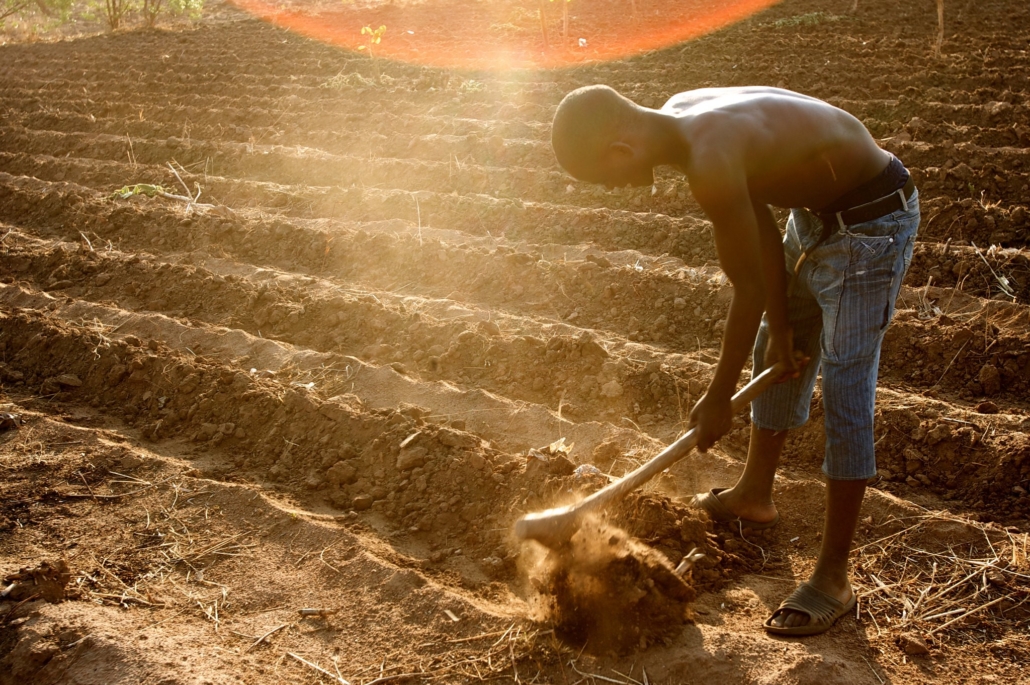Smartphone Apps Improving Agriculture in Africa

As Africa moves towards a knowledge-based economy, the development of new smartphone apps is paving the way for agricultural improvements. Apps have the potential to create lower prices for consumers. They also help farmers utilize production to maximize the amount they produce. Conventional models often lead farmers down the wrong path due to false information. As a result, fake and unrecommended seeds increase in growth. Luckily, there are several smartphone apps improving agriculture in Africa.
Benefits of Apps over Conventional Models
Apps have the ability to improve data and provide feedback from each harvest. This data improves democratization and informs policies to improve the livelihood of small farmers. Mobile apps also have the ability to allow children of farmers to take over the business from elderly parents. An emerging trend shows young people beginning to view agriculture as uninteresting and inefficient. They often also hold the view that a career in agriculture has no chance of upward social mobility. As a result, the average age of African farmers is 60. In contrast, the median age on the continent is 19. The digitization of agriculture is securing the future of Africa as a whole, making sure that the growing young population is not only willing to take over the business, but also has security in doing so. Apps also help improve the value chain. Farmers often have no connection to buyers. Furthermore, they are frequently unaware of pricing and conditions that exist on the market outside their own crop. This results in price insufficiency and insecurity. Utilizing apps geared towards improving agriculture, however, creates a more organized and interconnected value chain. This, in turn, moves Africa away from a fragmented supply and demand system.
GeoFarmer
One such app revolutionizing farming is GeoFarmer. Using internet communication technology (ICT), farmers can manage their farm and crop by communicating their overall experiences with other farmers and experts. This free-flowing communication allows farmers to learn from the positive and negative experiences of others, better improve their yield and reduce risk. Many ICT programs are still out of reach to a large portion of farmers due to usability issues and cost. GeoFarmer, however, is a cost-effective alternative to this. Farmers can use the app offline or in rural areas with poor service. By using near real-time, two-way data services, farmers are able to co-innovate and improve their performance.
Pix Fruit
Pix Fruit is an app that CIRAD and the Senegalese Institute for Agricultural Research developed jointly. The app cuts down the length of the supply chain, resulting in the ability to lower the cost for consumers. When farming fruit such as mangoes, farmers estimate their crop by guessing the amount of fruit on a plantation by counting a single tree and applying it to the entire farm. Pix Fruit’s research team noted that the margin for error for this method could be as much as a factor of 10. This means that farmers lose out on a large portion of their profit by not having an efficient counting method. Pix Fruit’s solution is simple. Farmers first take a photo of the fruit on a selection of trees using their smartphone. The app then uses fruit-recognition technology–in collaboration with data from drones that have information on climate, sale constraints and soil–to calculate the probable overall harvest. This technology helps farmers know the true value of their crop. This results in an increase in farmers’ ability to bargain for a fair price.
TruTrade
TruTrade is another of the apps improving agriculture in Africa. This app seeks to help provide fair prices to farmers. With focuses on Uganda and Kenya, TruTrade is a resource for farmers to learn about the true value of their crops and market pricing points. The app also provides information on new consumer markets. Furthermore, it works as a payment transaction system. Because of the mobile payment system, women have said that the app helps them feel more empowered because they are no longer afraid of someone robbing them while carrying cash to the market. TruTrade’s mission is to create viable village agent sourcing networks that can broker deals on behalf of small-scale farmers. Farmers bring their crop to a collection point, where someone weighs the crop and checks it for quality. TruTrade then pays the farmer directly to their mobile device. After the farmer receives payment, TruTrade delivers the final product to the buyer.
The Road Ahead
GeoFarmer, Pix Fruit and TruTrade are just a few of the many apps improving agriculture in Africa. While developers are still figuring out ways to make ICT products available to all farmers across Africa, many have taken great strides to create a more interconnected system, which in the end benefits both the buyer and the seller.
– Laurel Sonneby
Photo: Flickr
